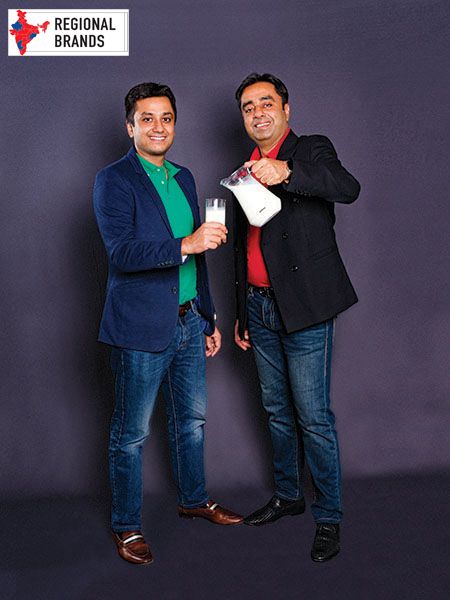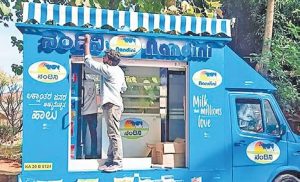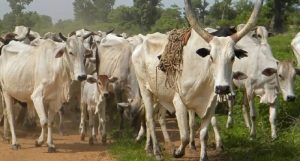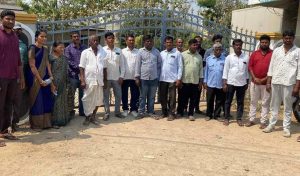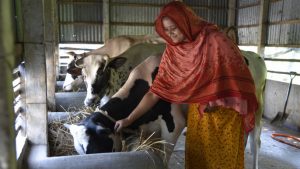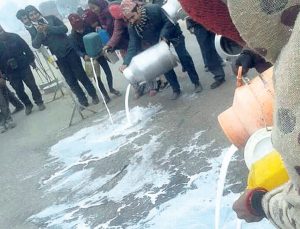
2003, Lucknow, Uttar Pradesh. The engineer started with a bang. Born and brought up in Kaimganj, some 230 km from Lucknow in Uttar Pradesh (UP), Jai Agarwal went to The Scindia School in Gwalior, completed his graduation from the DY Patil College of Engineering and joined the four-decade-old family business of tobacco in 2001. His diverse educational background egged the third-generation entrepreneur to explore and stay out of the comfort zone. “The true method of knowledge is experiment,” he underlines, quoting English poet William Blake. “I stayed true to the belief.”
Two years later, in 2003, Jai boldly undertook his maiden experiment. Gyan, a popular dairy company in UP in the 90s, was going through a turbulent financial patch and the owners were scouting for an external partner. Jai expressed an intention to his family of carving out his own path and decided to dabble in a business about which he had not knowledge, experience or expertise.
About 12 months later, “it bombed,” Jai recalls. The dairy company, he underlines reasons for the flop show, was in heavy financial distress. Constant hounding by a clutch of lenders and a battery of banks made matters worse. The company couldn’t stabilise, the young entrepreneur had his first learning, and he went back to the family business of tobacco. A year later, Jai’s younger brother, Anuj, finished his graduation from Delhi University’s Hindu College and joined the business. During the same time, in 2004, the family business came under intense pressure from a clutch of local tobacco players who played price warriors. The brothers devised a new game plan, launched a slew of products, expanded retail footprint and regained market share by 2007.
Call it serendipity, but Gyan [meaning knowledge in Hindi] came back into the lives of the brothers. They bought it after the company failed to clear its loans. “We had wanted to start a real estate project,” confesses Anuj. The prime location of the factory and the vast area tempted the brothers to dabble in real estate. But the idea got nixed, and the brothers decided to try their luck with the dairy business again. Their father, though, disapproved of the idea, reminded the duo of the 2003 failure, and refused to fund the project. On an emotional front, he didn’t want his sons to stay away from him. The grandfather, interestingly, backed his grandsons to the hilt.
The brothers had a fairy-tale beginning. The gains, however, were less to do with their brilliance and more to do with the commodity boom for two years starting 2007.
Gyan started with milk powder, focused on institutional businesses, and made loads of money with its B2B bet. Then, towards the end of 2008, US-based financial services firm Lehman Brothers collapsed, the commodity markets crashed, and Gyan found itself in a fix. In order to cut heavy dependence on commodities, the brothers now decided to steer the company towards B2C, and rolled out dairy whitener and ghee. Heavy investment was made in a dairy whitener plant, no stone was left unturned to spread awareness about the new dairy hero from the cow belt, and Lucknow was painted red.
The plan misfired. Dairy whitener failed to take off, and ghee was not the flavour of the season. The brothers continued with the institutional part of the business to keep running the show. Two years later, in 2011, came another opportunity. Two big national dairy players were looking for a plant in Lucknow to expand operations. The Agarwal brothers sniffed an opportunity, set up exhaustive infrastructure to process liquid milk and inked deals with the dairy majors. Again, the plan didn’t work out. “Both backed out at the last moment,” recounts Anuj. The brothers had invested heavily in the project, and the no-show was likely to snowball into a major crisis.
They decided to take a stab at the consumer business again. The brothers rolled out fresh milk packs. Just a month into the business came another hurdle. Unlike other players who procured milk from the cattle-rich western part of the state, Gyan focused on the eastern side. “Eastern UP fell on the blind spot of all players. So this was a virgin area,” says Anuj, explaining the reason for reaching out to dairy farmers in Bahraich district, north-east of Lucknow.
